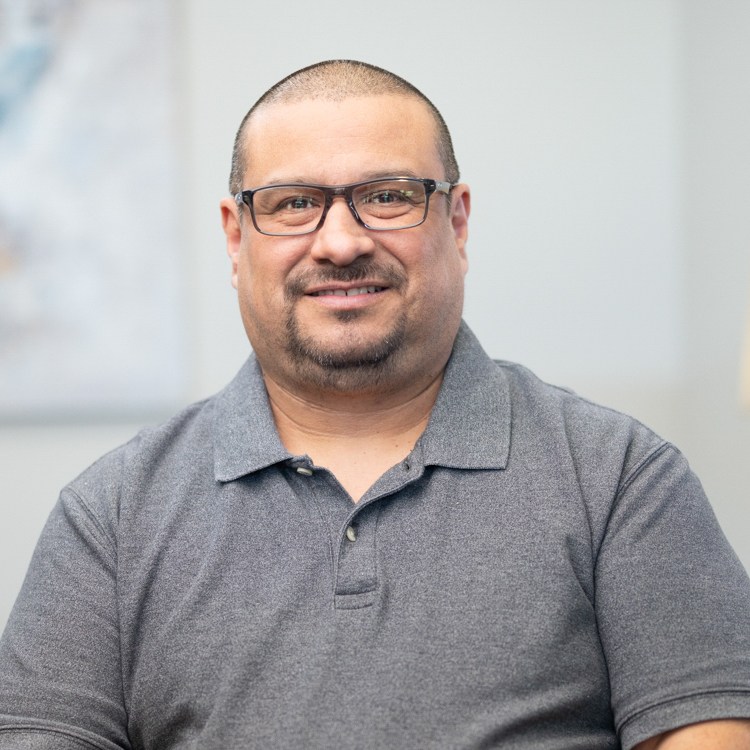Safe and Comfortable Third Molar Extraction
The average mouth only has enough space for 28 teeth. When wisdom teeth develop, there often isn’t enough room for an extra set of molars to emerge and function in the mouth. We safely extract wisdom teeth in our clean and comfortable Puyallup, WA, office to prevent future health problems from arising.We recommend removing wisdom teeth during the mid to late teen years. They typically develop around the age of 17, but you can have them extracted at any age. Younger patients have smoother recoveries and the third molars are not yet fully developed, making this procedure much easier when it’s done early. Your general dentist takes X-rays to track the development of your teeth. Your dentist or oral surgeon will remove the teeth, but oral and maxillofacial surgeons are third molar experts and are needed for more complex cases or impacted teeth.
Impacted Wisdom Teeth & Other Problems
Wisdom teeth can push and shove their way through the gum line, grow towards your other teeth, or even be trapped beneath the gums. When this happens, the tooth is considered to be impacted. An impacted tooth, because it is partially erupted, can be difficult to clean around, leaving you prone to infections or cavities.
The root of a wisdom tooth is large, which means that it can grow towards your nerves or impact the roots of your other teeth. Other common issues include:
- Tooth decay
- Gum disease
- Tumors
- Dental crowding
- Tooth misalignment
- Bone loss
- Pain
- Tenderness and sensitivity
Just because you’re not in pain doesn’t mean there isn’t a problem. Some people never develop wisdom teeth in their lifetime, while others develop between one and four or more than four. This is why attending regular dental checkups is important, because early detection leads to easier treatment.
Wisdom Teeth Removal Process
Treatment begins with a consultation. During this appointment, we will take 3D scans of your mouth and teeth and develop a personalized treatment plan that is specific to your needs. We will discuss anesthesia options to ensure you are comfortable and at ease throughout treatment.
On the day of your surgery, your doctor will administer the selected form of anesthesia. Then, your oral surgeon will make an incision in your gums and remove any bone blocking the teeth. If your teeth have erupted through the gums, we may be able to remove them using forceps. If needed, your wisdom teeth will be broken into smaller pieces to make removal easier.
Any surgical sites will be stitched closed, and you will rest comfortably in our resting area until the anesthesia has worn off. It is your responsibility to arrange a designated driver to take you home after your surgery. This person should stay with you for 24 hours to assist with anything you might need while you’re still under the effects of anesthesia.
Our practice offers a non-opioid option for pain relief after surgery. Ask your doctor about EXPAREL®.
Cost of Wisdom Teeth Removal in Puyallup, WA
The cost of having your wisdom teeth removed by one of our oral surgeons depends on how many third molars you have, your choice of anesthesia, and your insurance. We will go over this information during your first visit and provide you with a cost estimate upfront.
Types of Anesthesia
There are three main types of anesthesia that we use at our practice:
Hear From Wisdom Teeth Removal Patients
These patients can tell you about the firsthand experience undergoing wisdom teeth removal at our office.
Reviews From Our Wisdom Teeth Removal Patients

Karla
Wisdom Teeth Removal
Patient
"I am the mother of three sons who have been here to the Pacific Northwest Oral Surgeons to have their wisdom teeth out. When I first walked in, it was very welcoming. The receptionist and the surgical assistants were great. Dr. Carl Johnson is very nice and friendly. We have been pleased with his demeanor and his talent of what he does. So, if anyone in the Renton area is looking for a great oral surgeon, I definitely recommend Pacific Northwest Oral Surgeons."

John
Wisdom Teeth Removal
Patient
"Hi, I'm John. I'm from Parkland and I came for multiple extractions and dental implants. When I walked into this practice, I felt great. I was greeted with a big smile. My doctor was very knowledgeable, very professional. My procedure went really well. They called me personally to see how I was doing, make sure everything was going good. I felt great. They did a really good job. Once I get my overdenture, I know my quality of life will improve. I'm gonna have some corn on the cob and a nice big fat steak. It'll feel great to have my smile back. I have recommended them and I will continue to recommend them."

Jessica
Wisdom Teeth Removal
Patient
"I needed to get my wisdom teeth taken out, and I heard this was a good place to go, so I decided to come here. I was very nervous before coming in just because of the anesthesia, and after the experience, I realized it really wasn't scary at all. The staff was really nice because they would tell me everything they were doing, like when I was getting the IV put into my arm, she just talked me through the whole process, which actually made it really nice and calming for me. The surgery went very well. The healing process was really quick. I was never in a lot of pain, never had to take my actual pain pills or anything. Carl Johnson was a cool guy. I definitely had a good experience here. This was just the best place I think you could get your wisdom teeth taken out because it was just so easy and nice."

Mike
Wisdom Teeth Removal
Patient
"I came to Pacific Northwest Oral Surgeons to get a total restoration. I think Carl Johnson is very easy to talk to. He had a full staff of people — there was four people that were involved one way or another, Carl being the principal person. You trust him; I guess you trust him in the fact you know that he’s going to tell you the way it is. I like Mike Johnson a lot. He’s very sensitive to how you want your finished teeth to look like. They’re so natural now that I’m not really conscious of it until somebody says, “Wow, I like your teeth.” Dental implants are definitely the way to go. I wouldn’t have done anything differently. The finished product is everything I expected. Anybody in the Kent area that was looking for any kind of dental work like I went through, I would highly recommend Pacific Northwest Oral Surgeons."

Jessy
Wisdom Teeth Removal
Patient
"I felt comfortable as soon as I walked in. It was a very nice-looking office—very clean, very professional. The staff here was very helpful. They helped me feel comfortable for my procedure and ready to get my teeth pulled out. The doctor was very helpful with everything I needed, answered any questions I needed about the procedure, and just was very kind. The procedure went really well. My recovery was very smooth and easy. I’d say I had a fantastic experience just for when it comes to any procedure, especially it was my first procedure, so I felt very comfortable coming here. I would absolutely recommend Pacific Northwest Oral & Maxillofacial Surgeons."
Frequently Asked Questions
Can I go to work after a wisdom tooth removal?
If you have undergone IV sedation, you will be sleepy for the rest of the day following surgery. You should not drive or operate machinery. Your primary focus should be resting and allowing your surgical sites to heal. You can return to your normal routine several days following surgery.
How painful is wisdom teeth recovery?
Some discomfort can be expected with any surgical procedure. You can manage swelling and pain with over-the-counter pain medications and ice packs. Be sure to take in lots of fluids and rest so that your healing period is smooth and quick. By following the guidelines in your post-operative instructions, you can expect to fully heal in about 2 weeks and return to your normal routine in a few days.
Rinse your mouth to keep your teeth clean and prevent infection. Practicing good home care, such as sticking to soft foods and resting, will speed up the healing process and lead to a smoother recovery.
How do I know if I have dry socket or normal pain?
A dry socket is when the blood clot in the empty socket dislodges before the wound heals. Exposing the nerves below the socket can cause intense pain. If you experience sudden pain in the extraction site or were improving and quickly became worse, you may have a dry socket and should contact our office.
Should you be put to sleep for wisdom teeth?
Many patients under IV sedation for this procedure. This form of sedation puts you in a sleep-like state, unaware of the procedure and unable to feel pain. You are able to answer questions asked by your surgeon, but will wake up in the recovery area with no recollection of the surgery. General anesthesia is also an option, which will render you unconscious. We will discuss your options for sedation during your consultation.
Schedule Your Visit With Us
Contact Us




